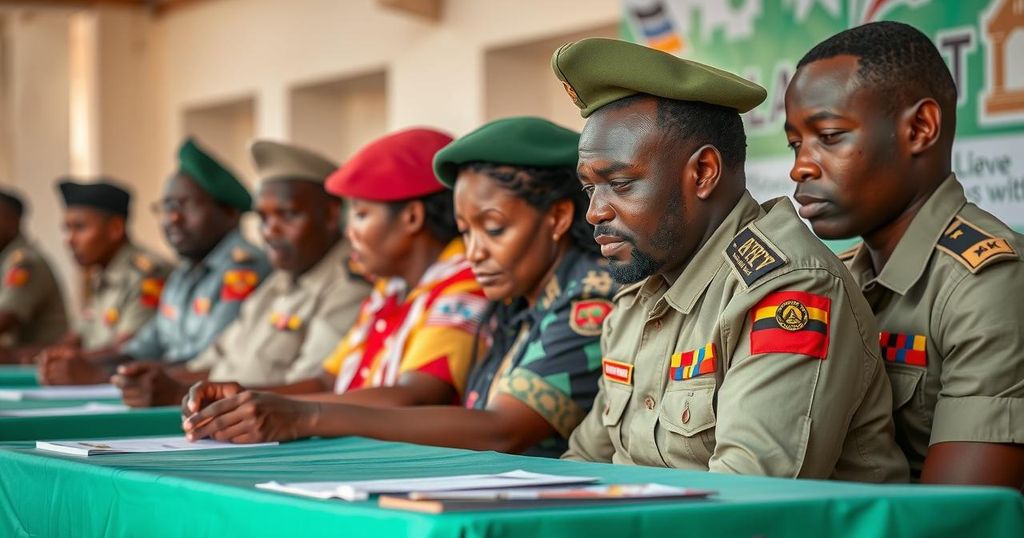Chad Holds General Election Amid Opposition Boycotts and Low Turnout
Chad conducted a general election following a three-year military rule, but voter turnout was low as opposition called for a boycott. There are serious concerns regarding the legitimacy of the electoral process amid accusations of predetermined outcomes and electoral fraud, set against the backdrop of ongoing local and regional instability.
On Sunday, Chad held a general election, which the government portrayed as a significant step towards concluding three years of military governance. Despite official projections of a record turnout, early reports indicated that the participation rate was only 38%. Opposition parties encouraged voters to boycott the election, asserting that the outcomes were predetermined and designed to benefit President Mahamat Idriss Deby Itno and his associates. Many voters expressed skepticism about the integrity of the electoral process, with some referring to it as futile.
Among those who voted was 39-year-old Patrice Lumumba Deoumoundou, who hoped for a transformation in societal conditions, yearning for more jobs and equitable treatment. Election officials reported that turnout among the military was 72%, with 54% of nomadic voters participating. Nonetheless, opposition leaders noted irregularities, including the disappearance of ballots, calling for public vigilance against electoral fraud. The elections were conducted amidst ongoing insurgencies and geopolitical tensions in the region, highlighting the complex context of Chad’s political landscape.
Chad has been under military rule since 2021 when Mahamat Idriss Deby Itno succeeded his father, who had governed for three decades until his death. The recent elections were framed by the government as a pivotal transition to democracy following years of military oversight. However, a significant portion of the opposition has raised concerns regarding the legitimacy of these elections, suggesting that they are merely a façade for continuing authoritarian governance. The electoral context is further complicated by local socio-economic challenges and security threats posed by groups such as Boko Haram.
The recent general election in Chad underscored the persistent divisions between the ruling government and opposition forces, with low voter turnout reflecting widespread disillusionment. Allegations of preordained outcomes and electoral fraud call into question the integrity of Chad’s transition to democracy. The political climate remains tense as both local and international observers scrutinize the unfolding developments, amidst pressing needs for reform and stability in the region.
Original Source: www.rfi.fr




Post Comment